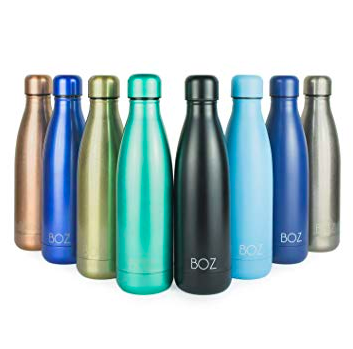Plastic Water Bottles: Your guide to ditching single-use plastic
Plastic water bottles
After the rise of plastic water bottles, companies recognized its potential as an indestructible material that you could drop, kick, smash, or leave on the shelf for weeks.
What they forgot to consider is how the heck is this material going to break down or decompose, and at what cost?
We are now only considering this a problem after we have spent over 11.7 billion dollars on 8.8 billion gallons of water. To put that in perspective, we use 2 million water bottles every 5 minutes.
The average adult’s body is composed of at least 55-65% water. So I’m not advocating for you to stop drinking water, but I challenge you to rethink the way you drink it. (Let us know how you use plastic by clicking here.)
We are going to cover 5 key areas:
Plastic water bottle pollution
If you want to talk about multitasking, plastic water bottles are the all-time champions! Not only do they pollute during the process of extracting and processing fossil fuels, they even get you at the back end. Approximately only 10% of water bottles are effectively recycled. Pollution not only impacts our climate, but it can also lead to severe health risks for humans and animals.
“Studies estimate there are now 15–51 trillion pieces of plastic in the world’s oceans — from the equator to the poles, from Arctic ice sheets to the seafloor”.
It’s extremely difficult, if not impossible, to remove all the plastic once it has made its way into the ocean. Our solution to this problem needs to begin on land. Fish, sea birds, and other marine mammals are ingesting thousands of plastic microfibers each year.
Government Intervention: We have gone too far
Campaigns and petitions are pushing for plastic(s), especially water bottles, to be considered pollutants. Governments and activists are beginning to ban together in their fight to eliminate single-use plastics. We have already seen policy changes in San Francisco, Washington, Kenya, India, France, Bangladesh and even in our own backyard.
“The Justin Trudeau-led government also decided to take necessary measures to reduce plastic pollution in Canada. Canadians are trying to ban plastic bottles, bags, and straws in as early as 2021. However, in Montreal, there is already a ban on plastic items”.
How long does it take for a plastic bottle to decompose?
So do plastic bottles even break down since they are so resilient? In fact, they do… after about 1000 years. Once they break down, you guessed it, they leak harmful chemicals into the ocean or soil. Sunlight or UV rays are often the most effective in breaking down plastics that didn’t make it to recycling facilities.
You might have read about the uninhabited island where over 4000 pieces of plastic were found, ranging from water bottles to plastic straws. Maybe you have seen your favorite restaurants and coffee places decrease prices when you bring your own mug. An issue that has been overlooked for years is coming back to bite us.
Decades after our existence people will still be cleaning up the water bottles that we are using today. Even Aquaman’s Jason Momoa has taken the initiative to help eliminate single-use plastic on a global scale.
Tap water or bottled water?
There has been an on-going debate surrounding tap water versus bottled water. A study was completed testing over 1000 water bottles from 103 different companies. The test was conducted to determine if there was a significant increase in water quality and purity in relation to tap water. The national resource of the defense council said that only one-third of the companies actually exceeded industry standards. In other words, bottled water is no different than tap water.
Environmental research provides evidence that bottled water is falsely advertised as pure and filtered. Despite this information, the plastic water bottle industry is still generating approximately 2.5 billion in revenues.
How is this even possible with what we know about plastics?
Bottled water companies attempt to capitalize on consumer’s fears of tap water suppliers. Brands such as Fiji, Smart Water, and Perrier have built their success by selling a desirable brand image.
Consequently, these products are feeling the pressures of increased sustainability as we try to minimize our environmental impact.
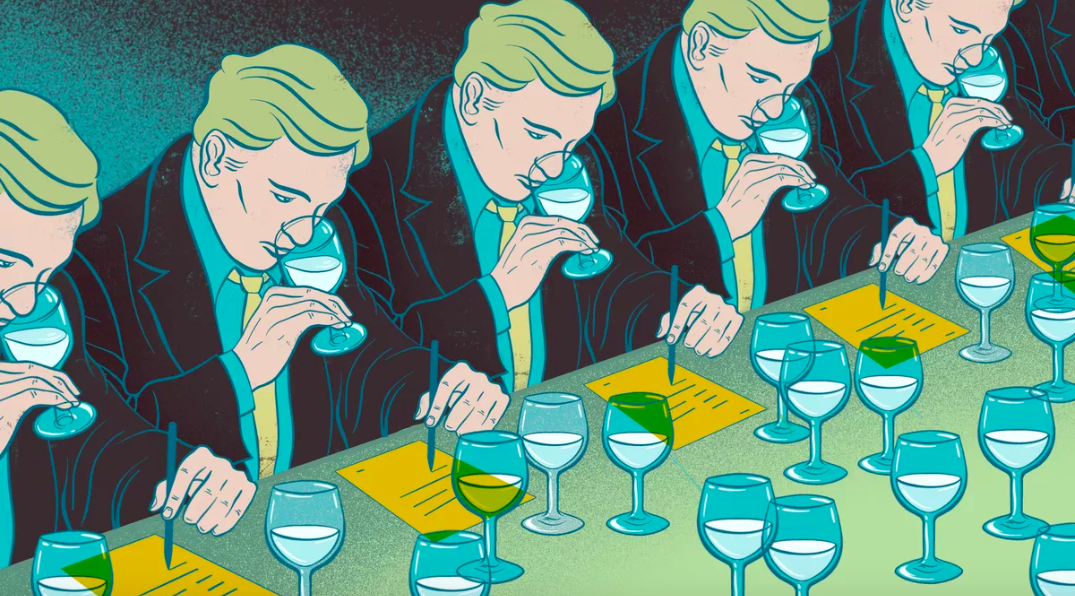
Still skeptical about tap water? Go to DrinkSoma and get a sleek-looking water filter!
Reusing Plastic Water Bottles
Now that we are on a roll, let’s look at another myth. People often think that reusing plastic bottles has severe side effects. Some people even say its considered cancer-causing.
This was deemed a rumor that was traveling around the web and you can visit the cancer society website to receive the full story. Keeping this in mind, do you ever hear people throwing around the term BPA?
If you’re like me, you nod your head but have no idea what they are talking about. BPA is found in many hard plastics. Its exposure to heat and extreme cold over long periods of time can cause the plastic to break apart into your beverage.
Now, this won’t cause any drastic, life-altering symptoms, but why take the risk? Many organizations offer BPA free bottle solutions. Make sure you identify this feature when buying your reusable bottle.
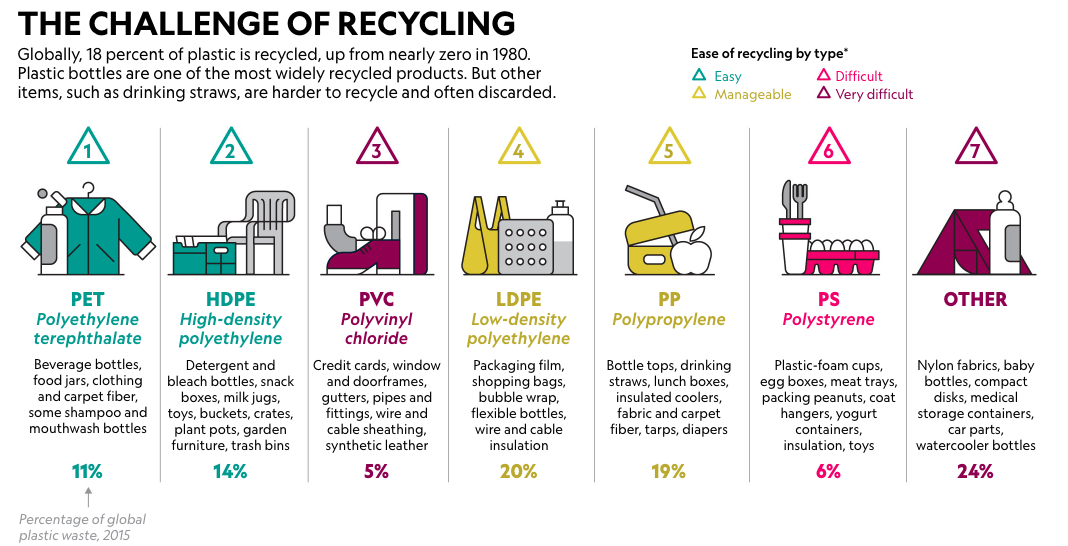
Recycling Plastic Water Bottles
Recycling water bottles is often a difficult procedure with strict rules and guidelines that need to be followed. We are all guilty of using plastics and maybe you are drinking out of a plastic bottle right now. However, I don’t think we should take all the blame.
We lack education and awareness surrounding topics such as plastics and pollution. Take the CBC article for starters. Canadians are paying millions of dollars in sorting costs because we are throwing items in the blue bin that aren’t even recyclable!
You mean I can’t put my old T-shirt in the blue bin? Seriously, they find this stuff every day! When you do use plastic products make sure you stay informed regarding what items are considered recyclable.
Plastic Alternative: Canned Water
Aluminum is much easier to recycle than plastic bottles. It can be recycled more times than plastic, it requires much less energy during this process, and there are often incentives to return cans. Aluminum is recycled 50% of the time compared to plastic bottles at 10%.
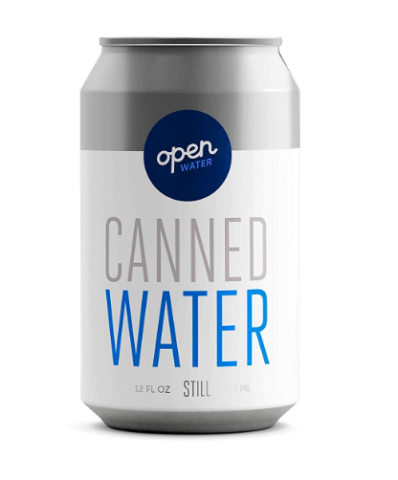
Plastic Alternative: Boxed Water
Boxed water not only looks great but it’s recyclable and biodegradable. If you still want the convenience of buying at any store make the switch to box water!
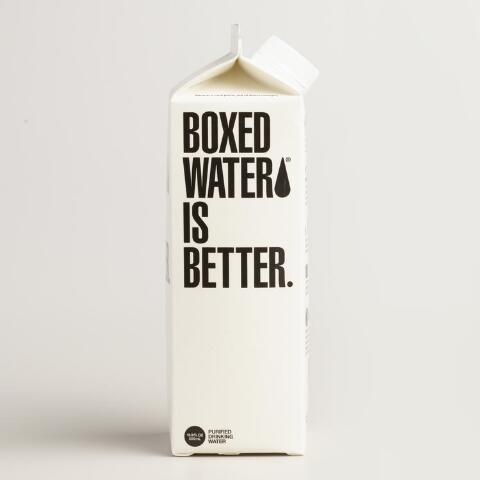
Plastic Alternative: Water Filter
Water filters used to be big, ugly, and annoying to maintain. Companies like Soma or Brita have taken this industry by storm giving filters a sleek design and becoming a must-have in the household.
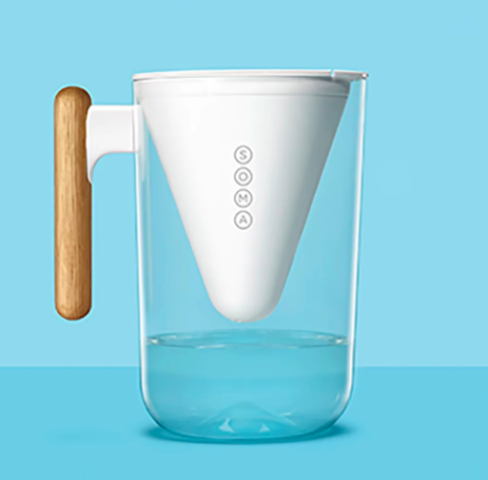
Plastic Alternative: Tap Water
You are already paying for it why not utilize it! You can pair it with the previously mentioned filters or just put it in a glass.
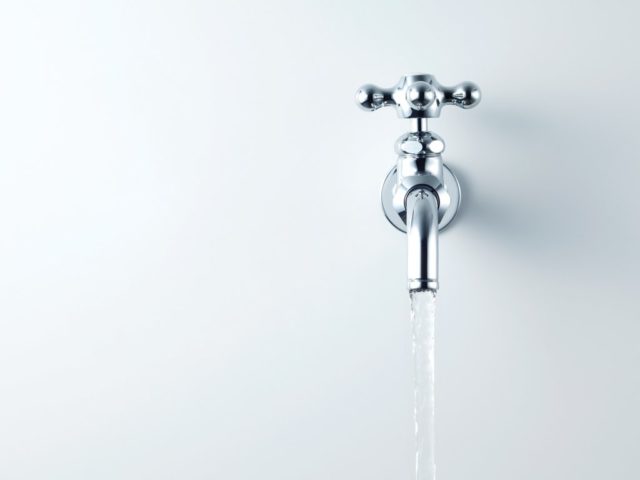
Plastic Alternative: Stainless Steel Bottle
An easy to clean, durable, and customizable option to take your water on the go. They come in a variety of different sizes and colors to fit your needs. Say goodbye to spending $5.00 a day on disposable bottles.
[simple-author-box]
